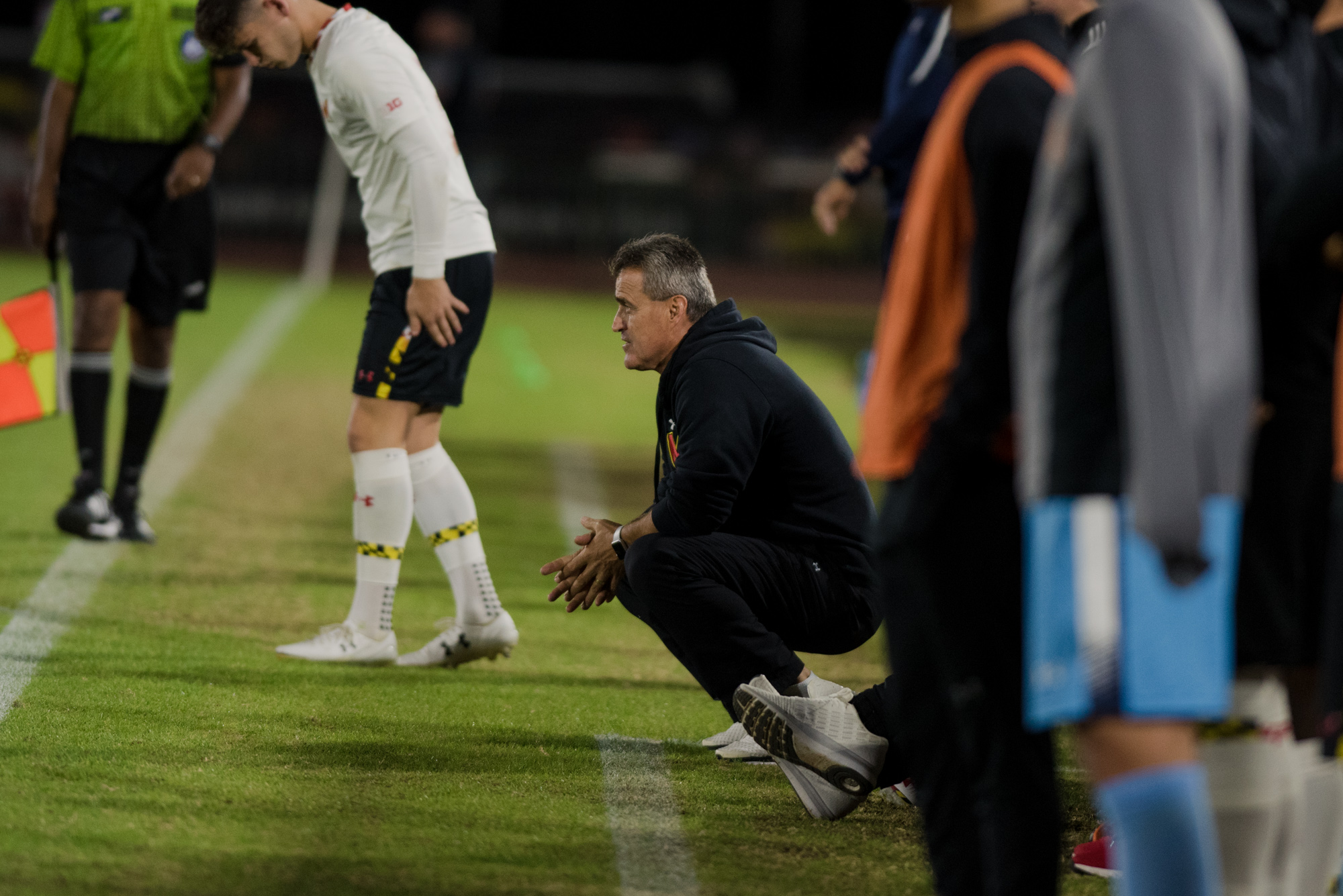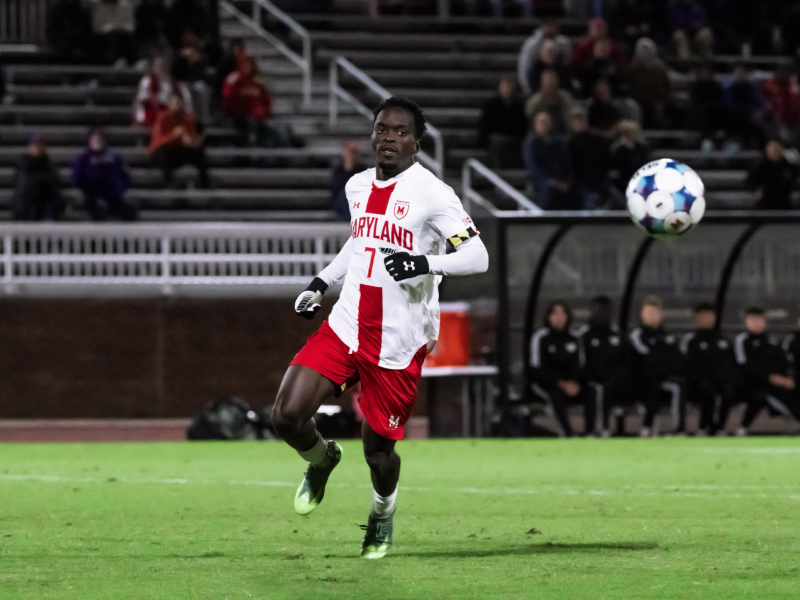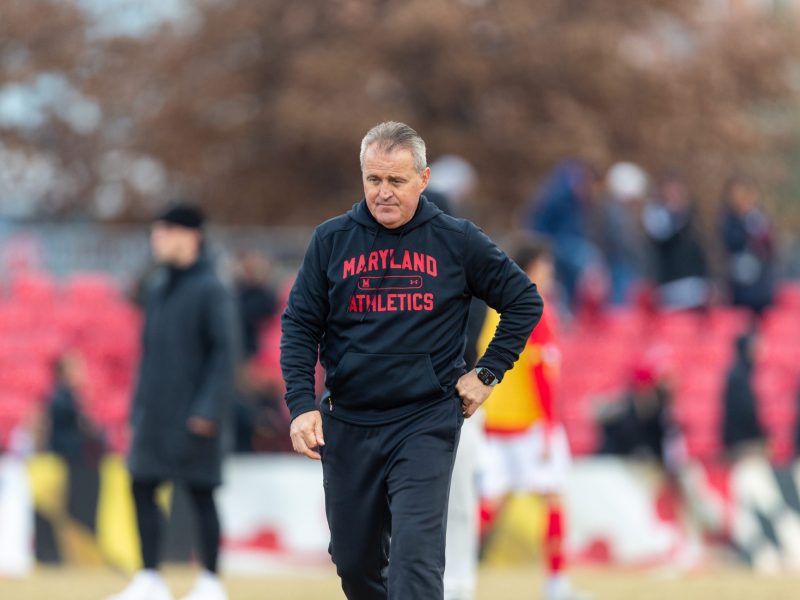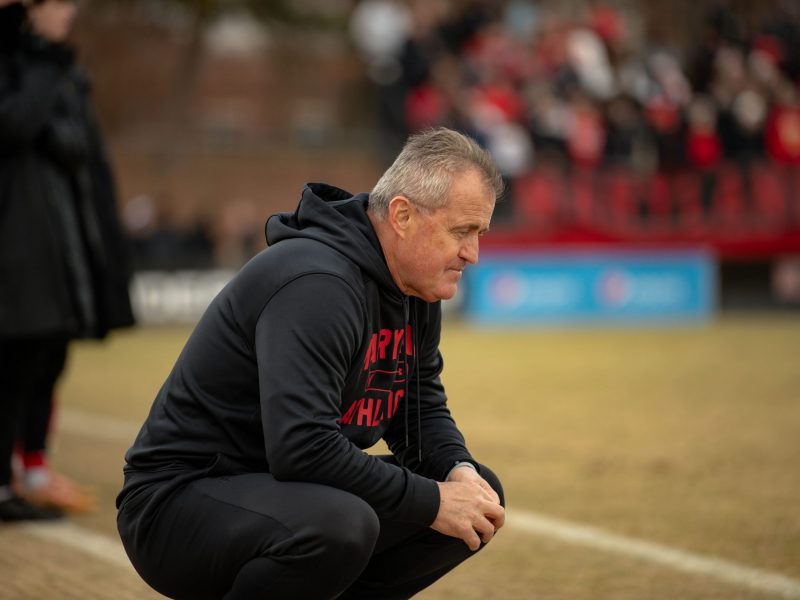During the first half of Maryland men’s soccer’s 1-0 win over No. 24 Yale, coach Sasho Cirovski was worried about his team’s lack of energy.
Cirovski wasn’t upset, though, because he knew the cause. The Terps were fresh off a hard-fought victory over then-No. 6 Indiana three days earlier, and had expended an abundance of effort to capture the 3-0 conference win.
Coming out of halftime, though, Maryland summoned enough energy to keep Yale off the board and eventually find the game-winning goal in overtime. After his team gutted out the win, Cirovski thanked them for their “terrific effort.”
“This was not a thing of beauty tonight. But sometimes on these midweek games, you just have to grind it out,” Cirovski said. “Our guys found a way to win, and that’s a sign of a good team. That’s the sign of a team with great culture, great chemistry — and I couldn’t be happier.”
With just two days to prepare for Yale, Cirovski said the team didn’t spend much time practicing. Instead, the players were in the training room trying to recover using a variety of techniques such as massage therapy and ice baths.
[Read more: Maryland men’s soccer moves up to No. 22 in United Soccer Coaches poll]
Cirovski said he turns into a “psychotherapist” as he tries to convince the players they’re ready to embark on yet another taxing game. With the current makeup of the college soccer season, his team has no choice but to adopt that mindset.
Even while managing his team, Cirovski continues to spearhead the movement for a two-semester model that would split the same number of games over the fall and spring semesters, separated by a winter break.
On Oct. 15, Cirovski tweeted images of a three-page letter that he co-signed with eight other national championship-winning coaches, urging the Division I Council to adopt the two-semester model as the proposal’s fate nears an April 2020 vote.
“Tonight, you had two teams probably playing on 50, 60 percent energy level. And I think it’s very frustrating for me as a coach to watch my players play sub-optimally because they don’t have any gas in the tank,” Cirovski said following the Yale game. “These kids deserve better, and we’re going to make sure they get better.”
While the proposal awaits a vote, Cirovski uses other methods to counteract the short recovery time. During Monday’s match, he called upon a pair of seldom-used reserves.
Midfielder Jacob Chakroun had played just four games prior to Monday night, but featured for 31 minutes against the Bulldogs. Midfielder Mike Heitzmann, meanwhile, played a season-high 18 minutes in relief.
[Read more: Johannes Bergmann’s OT goal gives No. 25 Maryland men’s soccer 1-0 win over No. 24 Yale]
“We know we’re going to have tired legs, but that’s why we always have a deep team,” defender Matt Di Rosa said. “We trust everyone that’s going to come on and make an impact.”
Monday’s game was the fifth time this season that the Terps played with just two days of recovery time.
The grind-it-out mentality has been apparent in each of those short-recovery matches, with Maryland winning four of the five despite scoring no more than two goals in each.
Against Villanova, the Terps found new life after halftime to record nine second-half shots and eventually breakthrough for a 1-0 win.
A week later, Cirovski’s group scrapped for a double-overtime win over then-No. 9 St. John’s when defender Brett St. Martin flicked in a goal with just over a minute before the match would have ended in a scoreless draw.
Last Monday, Maryland couldn’t solve then-No. 12 Georgetown’s defense and fell 1-0 while generating few threatening chances in its attacking third.
In its final short-rest match in the regular season, the Terps’ performance resembled the Villanova result, as Maryland steadily gained momentum and broke through with a 100th-minute header from defender Johannes Bergmann — again persevering under less-than-ideal conditions.
“At the end, we really showed how great the team chemistry is,” Bergmann said, “[and] that everybody works for each other, that everyone is fighting for each other.”



